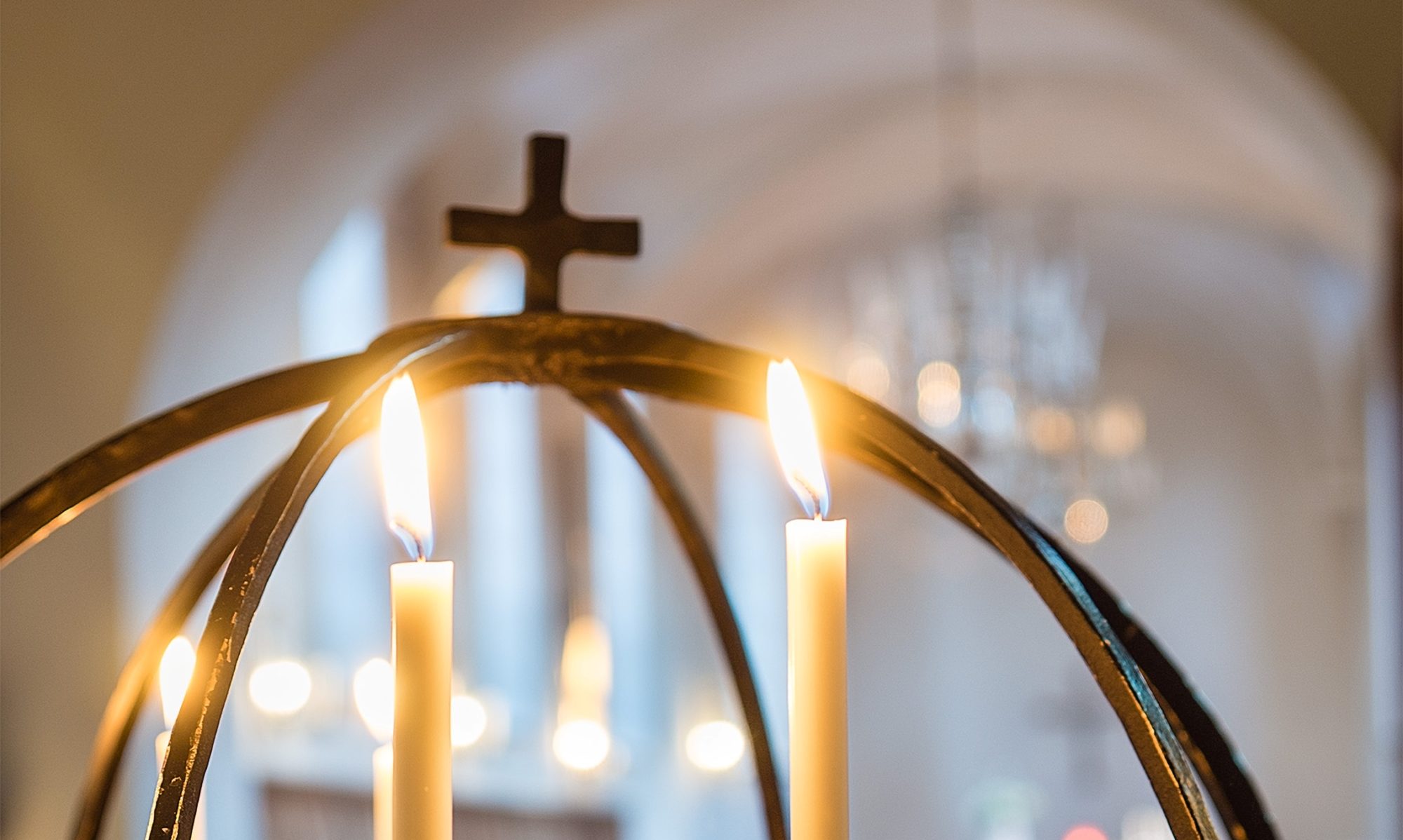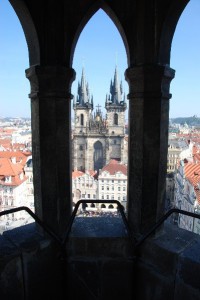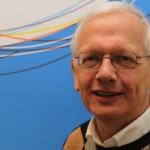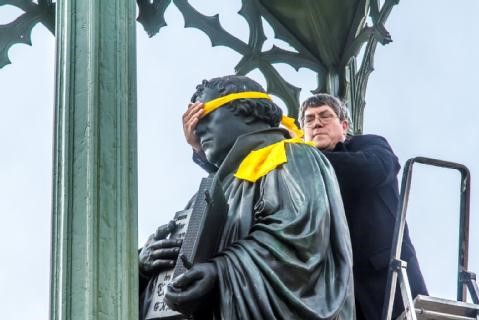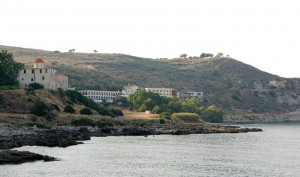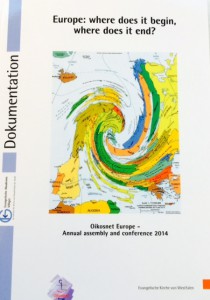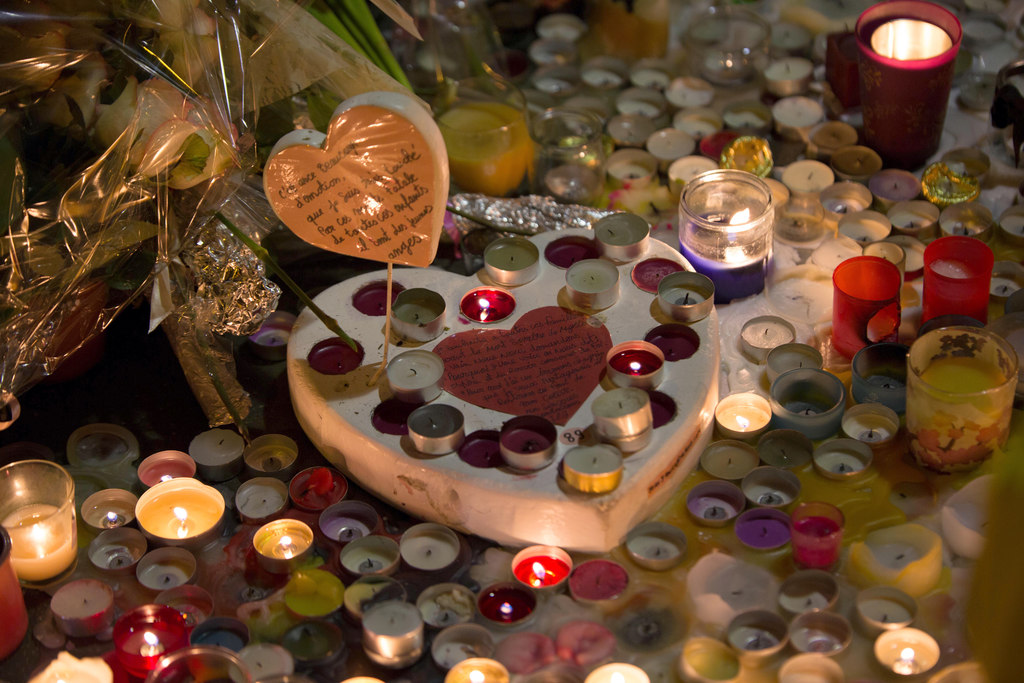Europe – From Crisis to Turmoil
When the Annual Conference of Oikosnet Europe met in Villigst in September 2014 and had “Europe” as its main theme, the focus was on giving “new impulses for the European integration process” as Prof. Jörn Rüsen put it during the meeting. Already at that time Europe was perceived as being in a crisis.
Much has happened in the meantime, much has happened in recent weeks and months. The number of refugees seeking asylum in the Schengen territory has reached unprecedented high figures – and each single refugee has his or her individual story and reasons to leave his or her homeland. Public authorities in many European countries feel totally overwhelmed in offering a welcoming environment and in offering social and health services. Many civil society initiatives, including church-related initiatives, step in and thereby setting countersigns to those who are engaging in hostile acts against foreigners.
With the terrorist attacks in Paris on 13 November terrorism in Europe has reached a new dimension. In as much as comparisons never do justice to the victims, some newspapers have titled: “Europe is facing its 9/11”. Consequently, the debate “security” versus “freedom rights” is reaching a new climax. First and foremost, however, preventing and combatting intolerance and fundamentalism as well as promoting mutual respect and conviviality in increasingly pluralist societies are demanded. Again an area where the engagement of civil society and the role citizens’ education is indispensable.
Both of these recent developments encouraged the Oikosnet Board to issue a public statement – the first since a very long time. The statement recognizes the commitment and active engagement of many Oikosnet members on these issues and encourages them to remain actively engaged.
Statement Oikosnet
The refugee crisis and the terrorist attacks should not be mixed up – as sometimes done by populist speakers and movements. As investigations on the terrorist atrocities in Europe have shown thus far, the attackers were either European citizens or entered the continent on other paths. Refugees are not responsible for terroristic attacks in Europe. They are the victims of terroristic attacks and failing governmental policies in their home countries. They need protection. The right to asylum is not to be put in question.
And Europe? Both of the recent developments show very clearly that a common European response is needed. No single European country is able to handle the amount of refugees nor the threat through terroristic acts on its own. The European Union is an important player in this regard, but a common response must also include countries like Russia and Turkey and it must be informed by the neighbours in the Middle East.
For many Christians as well as in the logic of military conflicts, common European airstrikes in Iraq and Syria will not be the solution. UN programmes and countries in and around conflict zones, where still most of the refugees live in camps and often under inhuman conditions, must be resourced and equipped in order to be able to help people effectively. Channels which feed terrorists with finances, resources and weapons must be cut. A more effective EU Neighbourhood Policy with its eastern European and Mediterranean neighbours, at present under revision, is needed, including a strengthened civil society dialogue. In this, Oikosnet members, being committed to the Christian faith as well as to human rights and human dignity, have played and will play their role.
The 2015 Annual Conference of Oikosnet Europe addressing the issue of “Fear” and “Remembrance” exemplified by the example of (Northern) Ireland and the work of the Corrymeela Community as well as by the training which Oikosnet offers under the name of “Dialogue for Peaceful Change” how important it is to have intermediate an unbiased institutions. These can help for people to share their “stories” with each other in a local, national or international context. “Only if narratives get changed, there is a real possibility for making a difference,” was one of the sentences participants took home from Corrymeela.
Rüdiger Noll, Executive Secretary of Oikosnet Europe
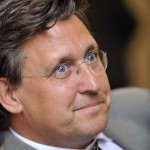
 Following the 2015 Annual Colloquium on Fundamental Rights dedicated to “Tolerance and respect: preventing and combating antisemitic and anti-Muslim hatred in Europe“, the European Commission has published a call for proposals under the Rights, Equality and Citizenship Programme. The Commission will award €5.4 million to projects on: training and capacity building to strengthen criminal responses to hate crime and hate speech; exchanging best practices to prevent and combat all forms of intolerance; empowering and supporting victims of hate crime and hate speech. As a result of last year’s call for proposals, financial support has been awarded to a number of projects including “Research, Report, Remove” and “eMORE”, which both focus on monitoring, mapping and the removal of online hate speech. More detail on the call for proposals can be found here. The deadline for submitting proposals is 18 February 2016.
Following the 2015 Annual Colloquium on Fundamental Rights dedicated to “Tolerance and respect: preventing and combating antisemitic and anti-Muslim hatred in Europe“, the European Commission has published a call for proposals under the Rights, Equality and Citizenship Programme. The Commission will award €5.4 million to projects on: training and capacity building to strengthen criminal responses to hate crime and hate speech; exchanging best practices to prevent and combat all forms of intolerance; empowering and supporting victims of hate crime and hate speech. As a result of last year’s call for proposals, financial support has been awarded to a number of projects including “Research, Report, Remove” and “eMORE”, which both focus on monitoring, mapping and the removal of online hate speech. More detail on the call for proposals can be found here. The deadline for submitting proposals is 18 February 2016.